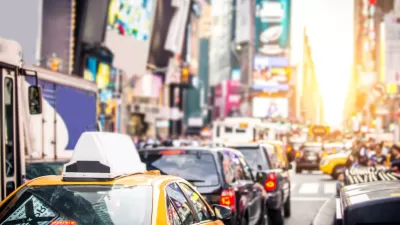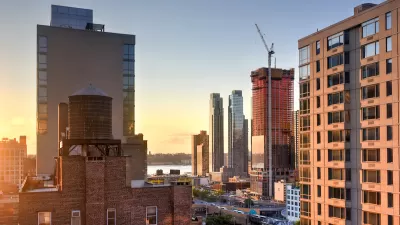The new system is designed to reduce travel time along a heavily congested north-south route on the city's East Side. However, unfamiliar ticketing protocols led to passenger confusion on the first day of operation.
The buses travel in express lanes on First and Second Avenues, but much of the timesavings is to come from sidewalk kiosk ticketing. When boarding the bus, passengers simply present a receipt rather than swiping a MetroCard or paying with exact change, a change that perplexed many early riders, reports Michael Gynbaum. The city hopes the practice will eventually reduce what is currently a 90-minute trip by 15 minutes.
Gynbaum writes:
'Traffic was predictably light on Sunday, and most passengers, asked if the bus was traveling faster than usual, said they could not make a meaningful comparison. The true test will probably come on Tuesday, the first full-fledged workday after the Columbus Day holiday, when the rush-hour crowds descend.'
The new system is the first for Manhattan but not for the city as a whole. Similar changes along a busy route in the Bronx improved travel times by 20 percent.
FULL STORY: Speedy Bus Routes Have Bumpy Manhattan Debut

Alabama: Trump Terminates Settlements for Black Communities Harmed By Raw Sewage
Trump deemed the landmark civil rights agreement “illegal DEI and environmental justice policy.”

Planetizen Federal Action Tracker
A weekly monitor of how Trump’s orders and actions are impacting planners and planning in America.

The 120 Year Old Tiny Home Villages That Sheltered San Francisco’s Earthquake Refugees
More than a century ago, San Francisco mobilized to house thousands of residents displaced by the 1906 earthquake. Could their strategy offer a model for the present?

Opinion: California’s SB 79 Would Improve Housing Affordability and Transit Access
A proposed bill would legalize transit-oriented development statewide.

Record Temperatures Prompt Push for Environmental Justice Bills
Nevada legislators are proposing laws that would mandate heat mitigation measures to protect residents from the impacts of extreme heat.

Downtown Pittsburgh Set to Gain 1,300 New Housing Units
Pittsburgh’s office buildings, many of which date back to the early 20th century, are prime candidates for conversion to housing.
Urban Design for Planners 1: Software Tools
This six-course series explores essential urban design concepts using open source software and equips planners with the tools they need to participate fully in the urban design process.
Planning for Universal Design
Learn the tools for implementing Universal Design in planning regulations.
Clanton & Associates, Inc.
Jessamine County Fiscal Court
Institute for Housing and Urban Development Studies (IHS)
City of Grandview
Harvard GSD Executive Education
Toledo-Lucas County Plan Commissions
Salt Lake City
NYU Wagner Graduate School of Public Service





























